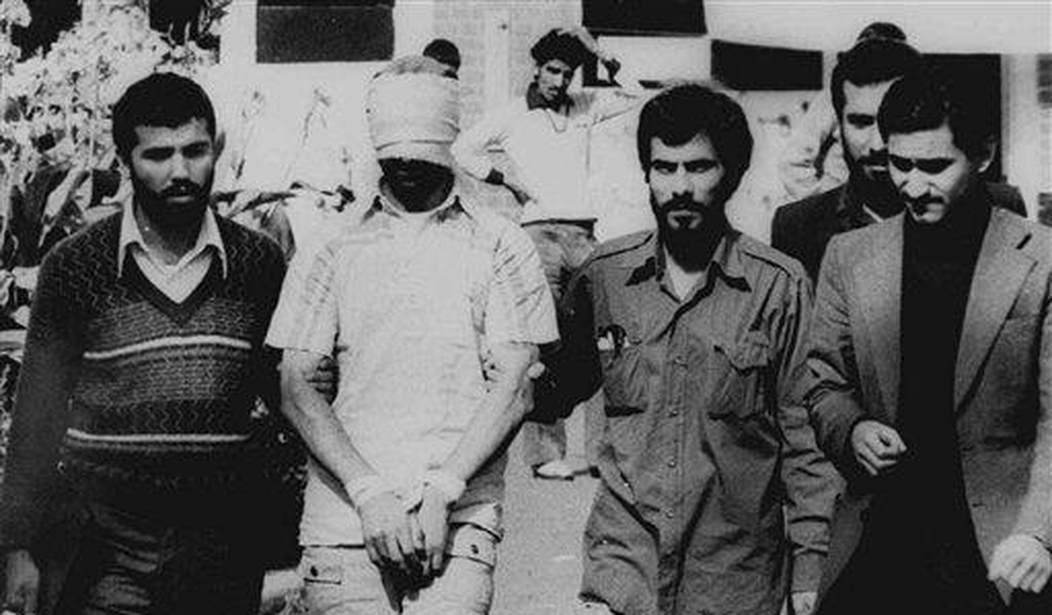The 1980 election ended in a landslide victory for Ronald Reagan. But until the last 10 days of the campaign, it was too close to call.
Reagan was portrayed as a right-wing nut who would start a war with the Soviet Union. Jimmy Carter, despite being widely seen by voters as incompetent, was portrayed as the rational alternative to the former California governor.
Knowing that a later break in the Iran hostage crisis might make a difference in the race, Reagan’s people began warning of an “October surprise” where Carter would engineer the release of the hostages just before the November election.
History tells us that Carter was unable to free the hostages and eventually lost to Reagan. But almost immediately, the left invented a fantastical tale of Reagan aides making secret trips to the Middle East to meet with Iranian representatives to tell them to keep the hostages in prison until after the election.
The stupidity of this tale is self-evident to anyone who knows anything at all about the first months of the Iranian revolution and why Carter’s valiant attempts to free the hostages were ultimately doomed to failure.
There was no government in any real sense in Iran that first year after the revolution. There were various factions, many of which had a significant say in the disposition of the hostages. But what stood in the way of getting the hostages released was a lack of a coherent government. Indeed, no one was in charge. Ayatollah Khomenei may have incited the revolution. But he had no real control of anything except the mob in the streets. And that authority could disappear in a flash — something Khomenei was well aware of.
So the ayatollah never pushed any policy that he wasn’t sure had the backing of the street mob. And that led to months of paralysis as the Iranians tried to get organized.
This is important because it shows that even if there’s some truth to the story (several Reagan aides went to the Middle East in October), Iran wasn’t going to release the hostages to benefit Carter in any way. They read newspapers and knew what holding the hostages meant to Carter’s re-election chances. The fact that they released the hostages the day Carter left office shows how much contempt they had for the former president.
But the Democratic left had to invent something that explained Reagan’s enormous victory. Hence, the left’s own “October surprise” was created. In this surprise, it was Republicans committing acts of treason to keep the hostages in prison to prevent a Carter comeback.
There were several iterations of the Republican October surprise. The New York Times details one story of an aide to the late Texas Governor John Connally, Ben Barnes, who accompanied him on a trip to the Middle East in October 1980.
Mr. Connally said to the Arab leaders, “‘Look, Ronald Reagan’s going to be elected president and you need to get the word to Iran that they’re going to make a better deal with Reagan than they are Carter,’” Mr. Barnes recalled. “He said, ‘It would be very smart for you to pass the word to the Iranians to wait until after this general election is over.’ And boy, I tell you, I’m sitting there and I heard it and so now it dawns on me, I realize why we’re there.”
Barnes says that Connally repeated the message to every Arab leader they met with on the trip.
None of that establishes whether Mr. Reagan knew about the trip, nor could Mr. Barnes say that Mr. Casey directed Mr. Connally to take the journey. Likewise, he does not know if the message transmitted to multiple Middle Eastern leaders got to the Iranians, much less whether it influenced their decision making. But Iran did hold the hostages until after the election, which Mr. Reagan won, and did not release them until minutes after noon on Jan. 20, 1981, when Mr. Carter left office.
At this point, Connally was not a close advisor to Reagan. And the Arab leaders — all Sunnis who were terrified of what was happening in Iran — had no reason whatsoever to pass along any message to the galoots in Tehran. Connally may very well have tried a little back-door diplomacy on Reagan’s behalf. But there’s no evidence at all that anyone in the Reagan campaign — or Reagan himself — knew about Connally’s message to Iran.
But the most persistent rumors about an “October surprise” come from a trip taken in July and August to Madrid by close Reagan advisor and later, Director of the CIA William Casey.
To forestall such a scenario, Mr. Casey was alleged to have met with representatives of Iran in July and August 1980 in Madrid leading to a deal supposedly finalized in Paris in October in which a future Reagan administration would ship arms to Tehran through Israel in exchange for the hostages being held until after the election.
William Casey was in Madrid at that time, but there is no evidence he was there for the purposes claimed by the left. Gerald Rafshoon, who was Carter’s White House communications director, said if true, it may have changed history. “If we had gotten the hostages home, we’d have won, I really believe that,” he said. “It’s pretty damn outrageous.”
To believe that Carter lost solely because of the hostages is fanciful thinking. Inflation was at 12%, and unemployment was at 7%. No incumbent president in history had ever been re-elected with those numbers.
Why the Times is resurrecting this discredited tale is a mystery. It may be a weak attempt to polish the badly tarnished reputation of a badly flawed and incompetent president who was lionized by the left because he meant well and is currently in hospice care.

